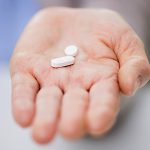In 2012 Jeffrey Dallas Gay, Jr. (age 22) died of an overdose of prescription drugs. There is little more tragic than death resulting from something so easily preventable. As a parent the instinct is strong to stamp from the face of this earth that which our child became entangled in. But just as setting a national 5 mph speed limit would be a counterproductive response to death by automobile accident, so too are the knee-jerk reaction of legislators when faced with these sorts of drug related tragedies. Senate Bill 81 was recently introduced into the Georgia General Assembly with the stated goal of trying to eliminate opioid overdoses. As with all such intrusions by the state into the lives of individuals, it leaves in its wake the collateral damage of individual lives sacrificed on the altar of the greater good.
The bill preamble first cites a scary-sounding decontextualized statistics (that roughly 30,000 die annually from opioid overdose – context: 0.008% of the US population) it then moves headlong into the “solution.” Now, if 30,000 people a year were dying because some enemy was lobbing bombs at US cities, then yes, the government should do something about that. But we aren’t dealing with an external foe, rather an internal one, ourselves. Laws on gambling, prostitution, drugs, alcohol, compulsory health insurance, etc. all share in common the well-intentioned desire to protect us from ourselves. But such laws undermine the very idea of a free nation built on individual rights. Do you sell your soul to save your life?
SB 81 purports to solve, or at least mitigate, the opioid “epidemic” by limiting first time opioid prescriptions in the state of Georgia to no more than a 5 day supply. Additionally every pharmacist is required to log all such prescriptions into a statewide database (cough, Big Brother, cough) so usage can be tracked to prevent someone buying “too much” (whatever that may be). Just as someone today can hit a wall if they try to buy “too much” Sudafed so too will the unintended consequence be that some must suffer in agonizing pain because their prescription is “too much” under the eyes of “the law.” But hey, who cares about individual suffering if we think our policy might help someone. What’s next, tracking our grocery purchases to be sure we aren’t “abusing” our bodies by buying the food that makes us less healthy and leading to higher health care costs? The greater good of “public health” would surely allow for such reasoning. Yes, laugh now, but it’s coming one day.
Of course these legislators want their cake and eat it too. The paragraph stipulating no more than a 5-day supply is quickly followed by a paragraph supporting the right of a physician to prescribe whatever they deem medically necessary. So once again politicians get to bask in the limelight of “doing something” while not actually doing anything other than adding yet another layer of bureaucracy for doctors who are already over-burdened with a mountain of regulatory paperwork they have to comply with from the local, state, and federal level.
The sad fact that no one wants to face is there no way to solve the opioid overdose problem other than getting people to follow the prescription on the bottle. And that’s not going to happen because people are people and some people just can’t follow directions. People “abuse” antibiotics as well by doing the reverse, not taking enough. This promotes antibiotic resistance. Indeed, nearly as many people (23,000) die each year due to antibiotic resistance. Why no bills designed to solve that “crisis”? Perhaps because no one is getting high off antibiotics? The desire to stamp out any possibility of artificially induced pleasure seems to be the driving force behind drug policy in this country. Anyone who needs a medication should not be made to suffer the hardship of additional hurdles just to get what they need because a handful of people can’t act responsibly. If you want to make a meaningful inroad toward ameliorating this problem, lobby the FDA to remove rules on side effect disclosures that require events with a 0.00001% chance of happening being listed. This leads to information overload and people just tune out everything. If the warning listed only actual hazards – like death from overdose – people would pay attention. Thus unintended consequence of government meddling leads to “solutions” like SB 81 which will invariably lead to more unintended consequences which can only be solved by yet more rules and legislation. The state cannot remake man through the pen. It must stop trying to do so.
